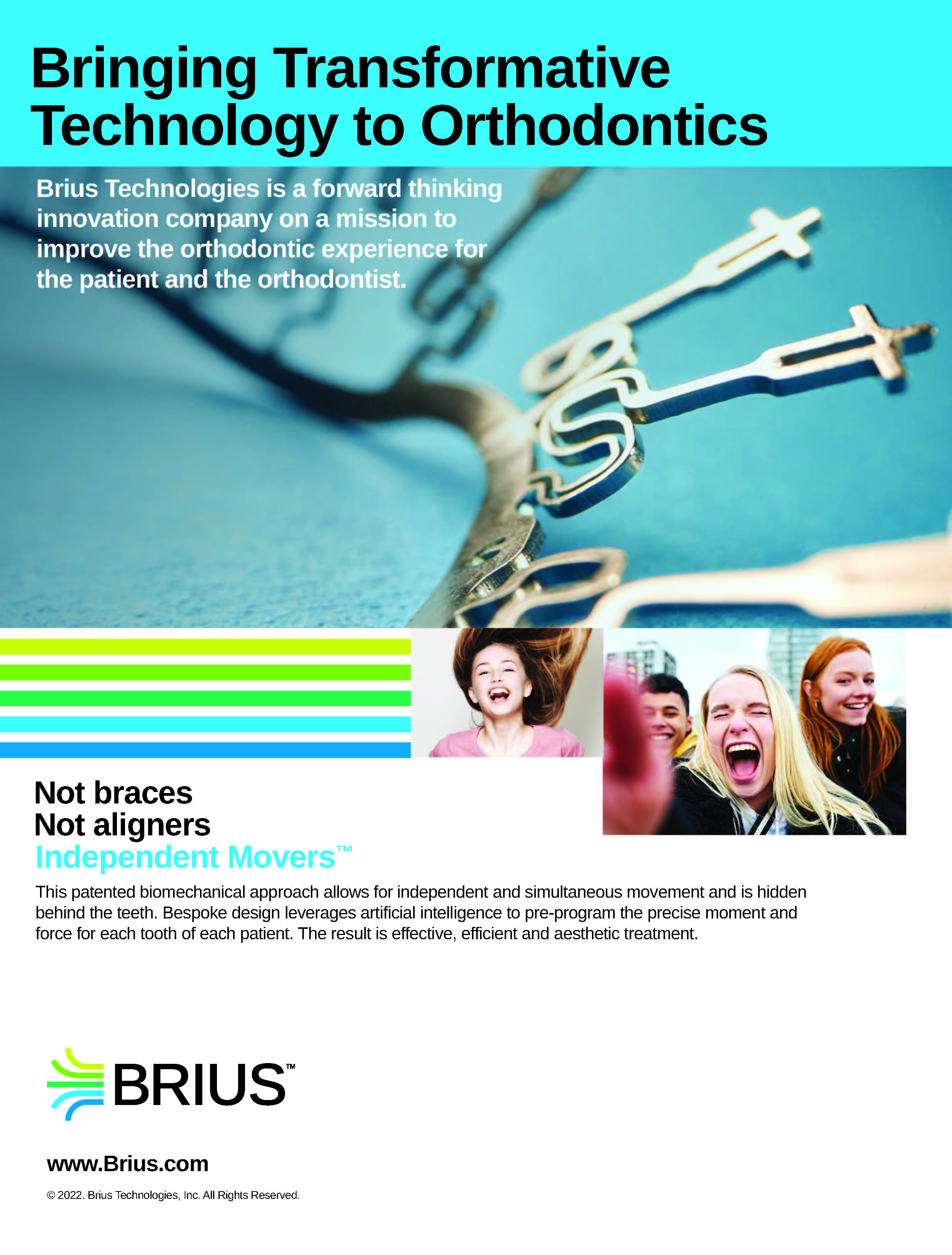Homer’s The Odyssey is considered to be the world’s first novel. This epic poem, written around the 8th century BCE, tells the story of King Odysseus’s tumultuous 10-year journey home following the 10-year Trojan War. During that decade, Odysseus battles mystical creatures and gods who are provoked by his excessive pride. When Odysseus finally arrives in his kingdom of Ithaca, he finds his palace in disarray and overrun with suitors. Ultimately, The Odyssey is a moral allegory about hubris and its consequences.
Over the past few years, I have begun sharing my own stories of humility. I usually end my lectures with a few introspective slides, a stark contrast from my generally exuberant delivery style. At the 2020 AAO annual session, I even dedicated an entire lecture to the subject of “What I Wish I Knew Sooner.” When I am not in front of an audience, I am constantly talking with my associates or residents about my many mistakes. My professional odyssey, so to speak, has been humbling.
Don’t believe me? Well, I barely survived my residency. In my practice, I have caused extreme root resorption by failing to prophylactically extract canines or premolars, ankylosis due to poor mechanics or unnecessary early treatment, pulpal necrosis after creating a traumatic occlusion, unintended tooth loss from treating periodontally compromised patients, severe occlusal wear by using abrasive material for turbos—and the list goes on. I have made every possible clinical error, and I carry immense regret.
Similar articles from the archive:
- THE EDITOR'S CORNER Learning from Experience November 1997
- THE EDITOR'S CORNER Lessons Learned September 1997
- THE EDITOR'S CORNER If at First You Don't Succeed October 1990
My problem was overconfidence. I was convinced that I was better than the orthodontists around me, including those with considerably more experience. I judged others with a harsher eye than I judged myself. I even lectured on obnoxious business topics such as collection goals and aggressive marketing. Looking back now, I am embarrassed by this behavior. I simply had no idea what it meant to be an orthodontist. Oh, how I wish I could go back 20 years and talk to that kid coming out of dental school.
After my lecture at the 2020 annual session, my moderator, Dr. Kelton Stewart, who happens to serve on the JCO editorial board, asked me when my behavior changed. The truth is that at some point, I simply ran out of excuses. It wasn’t entirely the patients’ genetics or their compliance, or even that I had started my career at a dental corporation. I realized that my repeated failures were happening because of me. Like Odysseus, I was the reason for my success and the source of all my problems.
Something wonderful happened after I took a more realistic view of myself: I improved as an orthodontist. I realized that I did not have all the answers, so I asked colleagues for advice. I took more frequent clinical records and caught my errors quicker. I slowed down and scheduled fewer patients per day. I focused on case finishing rather than daily collection. Above all, I discovered that orthodontics is a science and not a business, and that hubris is in opposition to science.
The Odyssey has endured because it is also a story about redemption. In the climactic scene, Odysseus, who is back in Ithaca and disguised as a beggar, strings his great bow and shoots an arrow through a row of axes to reveal himself. He proceeds to fight off the suitors and restore his kingdom, now as a stronger and wiser king. Through Odysseus’s journey of self-discovery, Homer taught us about life. That is, our pride will lead us astray, but our humility will bring us home.
I am humbled to begin this new journey as Editor-in-Chief of the Journal of Clinical Orthodontics.
NDK



COMMENTS
.